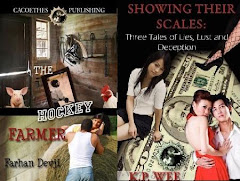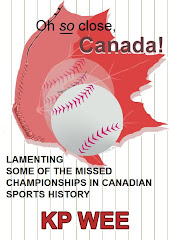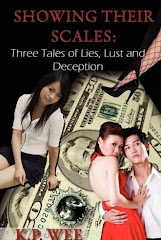Just over a decade ago, baseball’s Fall Classic was meaningful.
From 1991 to 1997, ie. Before the Yankees started their dynasty by proving 1996 wasn’t a fluke and minus the strike season in 1994, every World Series was intriguing. There was Joe Carter’s Series-winner in 1993, along with Gene Larkin and Edgar Renteria driving home the championship runs in extra innings in Game Sevens (1991, 1997). In the other Classics, the winning teams won by a single run in the clinching Game Sixes with the opponents leaving the tying runners on base or having them represented at home plate.
You had heroes like the Mark Lemkes, Len Dykstras, Luis Sojos, Chad Ogeas, Jim Leyritzes, Ed Spragues, Pat Borderses of the world, who came up big when you didn’t expect them to. Lots of memorable games to be sure.
The NBA Finals, Stanley Cup Finals, and Super Bowls—which at the time featured blowouts seemingly every single year by the NFC squads—had nothing on the World Series.
But what about baseball’s championship series now?
Too many off-days for the Colorado Rockies (2007) and Detroit Tigers (2006) made them rusty in what turned out to be lopsided Series losses to the Boston Red Sox and St. Louis Cardinals, respectively. Thanks to baseball’s new scheduling system in 2007 when extra off-days were included in the LCS, Colorado had too much rest (and rust) following a four-game sweep against Arizona in the NL Championship Series, wiping out whatever momentum the Rockies gained on the way to winning the senior circuit.
Late start times. So many World Series games end now when many in the East have gone to bed, thanks to the late starts, pitching changes that naturally occur in most every game, and the general length of contests to begin with. In the ridiculous third game of this year’s Series, which ended close to 2:00 A.M. Eastern, the action started at 10:06 P.M. following a 91-minute rain delay. Crazy.
TV networks. Many fans out there are complaining about the postseason coverage by TBS. Never mind how badly the commentators are doing, but why is the postseason on cable to begin with? Oh okay. The World Series is on FOX, but even Joe Buck gets lots of trashing, especially with his comments earlier in the postseason that he preferred reality TV to baseball (interestingly, even he suggested baseball games are too long.)
And this year’s “Classic”?
Bad managing, for starters.
With the Tampa Bay Rays’ backs against the wall, manager Joe Maddon decided to rest his two starters, “Big Game” James Shields and Matt Garza, in the completion of the suspended fifth game.
Shields, who was well rested and had pitched 5.2 scoreless innings against Philadelphia already to give Tampa Bay its lone win in the Series, was instead saved for a Game Six which ended up not being necessary. (Shades of Cubs skipper Lou Piniella saving ace Carlos Zambrano after just 85 pitches in a tie game in the 1997 NLDS?)
Maddon turned to his bullpen, which hadn’t exactly done the job if you counted the fifth game of the ALCS and a couple of the earlier contests in Philadelphia, with the score 2-2 when play resumed in the Phillies’ half of the sixth inning.
The bullpen couldn’t get it done, and the Rays were done.
Then we look at the way the suspended fifth game was handled by the commissioner.
With the rain coming down and field conditions becoming worse, Bud Selig could have suspended or called the game several innings back, but waited until the Rays tied the score at 2-2 before declaring the contest suspended.
Surely Selig must have been waiting for Tampa Bay to draw even, another fiasco much like the All-Star tie debacle in 2002.
Selig supposedly had made the decision before the game that no World Series contests could be rain-shortened contests the way regular season games sometimes are.
Except both the Rays and Phillies clubhouses didn’t know about this supposed decision. There were several players on both sides who were quoted as saying they thought if Tampa Bay couldn’t score to tie it and the game became “official” after 4 ½ innings, the Phillies would have won.
The point is, why wasn’t the game stopped innings earlier? Players could have been injured on the wet field conditions, and if the Series had been extended to a sixth or seventh game, either or both lineups could have been weakened had there been any significant injuries.
So, it’s hard to understand why the game was allowed to continue on until Tampa Bay was able to tie it. You had the feeling the game was going to keep going despite the rain if the Rays were still behind.
(Thankfully the Phillies fans weren’t screwed this year because their team won. Can you imagine if Game Five was won by Tampa Bay, which then took that momentum into the final two contests at Tropicana Field and ousted the Phils? All this when the Phillies were up 2-1 and the game was already official after five innings? This would have been worse than in 1993, when the Phils led the Blue Jays 12-7 in the rain and the game wasn’t called. Toronto came back and won 15-14, taking a commanding 3-1 Series lead.)
And while we’re at it, why was Game Five even started? Okay, enough about this year.
Given recent revelations, even past World Series can no longer—in my view anyway—be looked upon in the same way.
You have admissions from stadium employees that “home field advantage” actually meant something in World Series play. And this from a Fall Classic that ESPN had once ranked as the best ever played, and yes, it was played at the Metrodome.
Then you hear about players who slugged significant, Series-changing dingers in 1992 and 1996, who later admitted having used substances during their careers. In another "great" World Series, the first "November Series" because of September 11, the Game Seven winning hit was delivered by a playerwho had never before (and has never since) put up such big power numbers in propelling his team to the NL West title by narrowly edging out the San Francisco Giants.
And it appears dubious World Series contests go even way before that.
Any baseball fan knows all about or has at least heard of Shoeless Joe Jackson and his Black Sox from 1919. Even several years earlier, there were other “Suspicious Series” (as titled in Rob Neyer’s Big Book of Baseball Lineups, pages 42-43, 2003 edition) when the Red Sox took on the New York Giants in 1912 and even during Boston’s 1903 triumph over Pittsburgh. That would be the Red Sox’s first two ever World Series championships, if anyone is counting. Yikes.
The World Series… Yes, for me, it’s lost a lot of luster, and this year’s Rays-Phillies tilt didn’t do much to reverse any of that.
Well, baseball is over for another season. The World Series is done. Does it matter?
Rick? Trout? Cliff? House? Comments? Rainbow Trout?
**Not only does KP Wee write for Bleacher Report, he’s also a published author. Check out his fiction novel, “Showing Their Scales,” on Amazon.ca and Amazon.com.**
"Showing Their Scales" and "The Hockey Farmer"
We are pleased to introduce the works of local B.C. authors KP Wee and Farhan Devji to you:
"Showing Their Scales" contains three tales of lies, lust, and deception. These are short novels which deal with betrayal and revenge, with three main male characters and how they end up hurting the women in their lives.
**Catch an episode of BlogTalkRadio here with KP's interview on his books, recorded Dec 29, 2008.**
"The Hockey Farmer" is a story about Logan Watt, who hails from Cochrane, Alberta, and has to decide whether to rehabilitate the legendary family farm or pursue an unlikely career in professional hockey. The story also shifts to Vancouver and contains numerous Vancouver Canucks references.
Help support a pair of B.C. authors by picking up your own copies today!
-- "The Hockey Farmer" can be purchased here,
while "Showing Their Scales" can be bought here. --
"Showing Their Scales" contains three tales of lies, lust, and deception. These are short novels which deal with betrayal and revenge, with three main male characters and how they end up hurting the women in their lives.
**Catch an episode of BlogTalkRadio here with KP's interview on his books, recorded Dec 29, 2008.**
"The Hockey Farmer" is a story about Logan Watt, who hails from Cochrane, Alberta, and has to decide whether to rehabilitate the legendary family farm or pursue an unlikely career in professional hockey. The story also shifts to Vancouver and contains numerous Vancouver Canucks references.
Help support a pair of B.C. authors by picking up your own copies today!
-- "The Hockey Farmer" can be purchased here,
while "Showing Their Scales" can be bought here. --
The Hockey Farmer / Showing Their Scales

Subscribe to:
Post Comments (Atom)
Brief Resume Highlights
Writing Experience
- Bleacher Report: contribute articles on the Vancouver Canucks, Boston sports, hockey, and baseball at least three times a week (2007-Present); edit sports-related articles from other posters (2008-Present)
- UCL: developed Career Planning curriculum (2007); consulted on for other curricula issues (2005-Present)
- Consumer Research: submitted unsolicited proposals for improvements on company operations (2005)
- B.U.D. College: developed Grammar curriculum consisting of five levels (2004); edited curricula for other courses (2004)
- KGIC: developed Career Planning curriculum proposal for Surrey campus (2004)
Writing Accomplishments
- Named Bleacher Report Bruins Community Leader (2008)
- Bleacher Report: contribute articles on the Vancouver Canucks, Boston sports, hockey, and baseball at least three times a week (2007-Present); edit sports-related articles from other posters (2008-Present)
- UCL: developed Career Planning curriculum (2007); consulted on for other curricula issues (2005-Present)
- Consumer Research: submitted unsolicited proposals for improvements on company operations (2005)
- B.U.D. College: developed Grammar curriculum consisting of five levels (2004); edited curricula for other courses (2004)
- KGIC: developed Career Planning curriculum proposal for Surrey campus (2004)
Writing Accomplishments
- Named Bleacher Report Bruins Community Leader (2008)




No comments:
Post a Comment